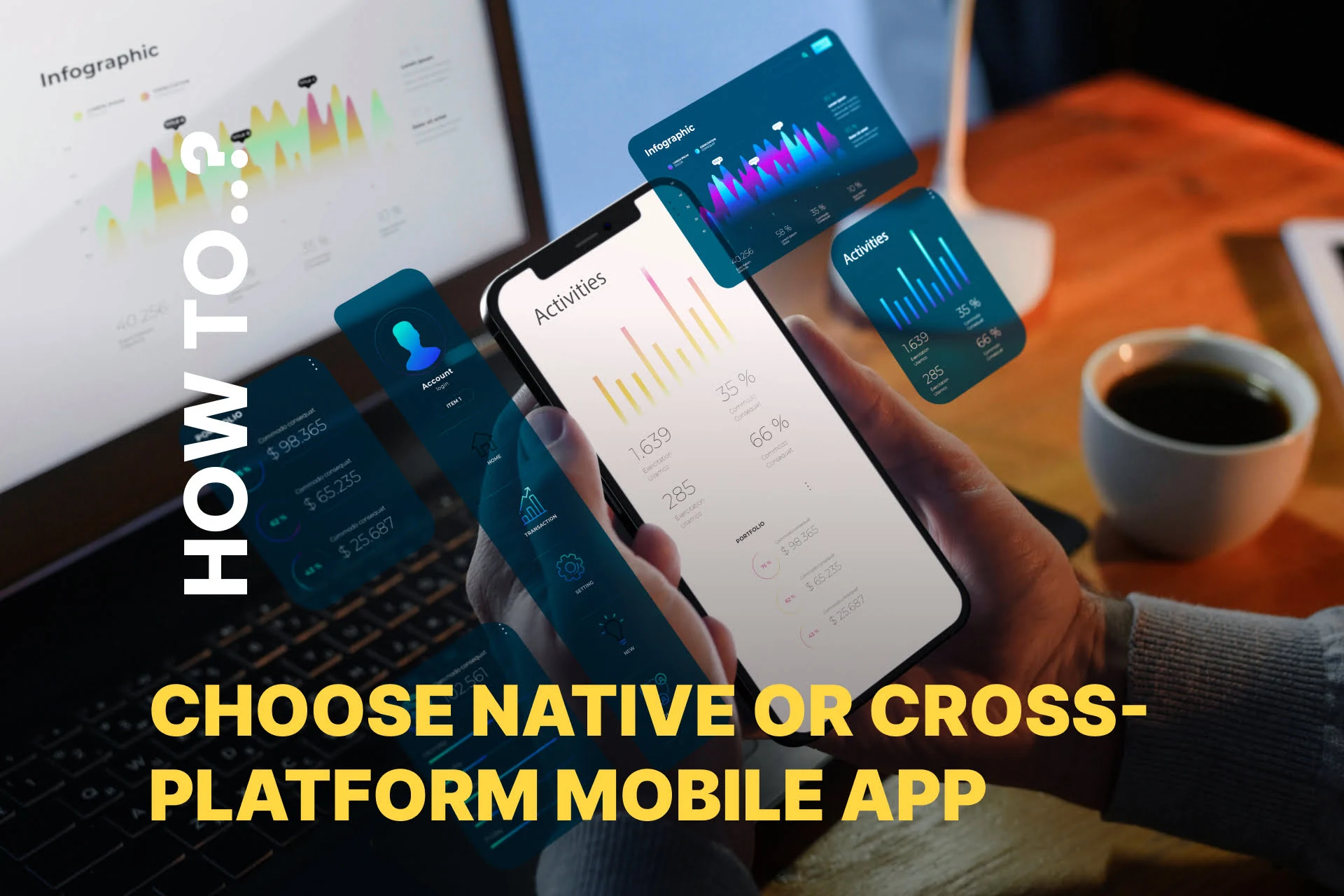What is Project Estimation?
One of the first and most important decisions when building a mobile app is choosing the right development approach:
Native or Cross-Platform?
Each path has its advantages – and trade-offs. Your choice will affect not only development speed and budget, but also performance, scalability, and user experience.
In this article, we’ll explain the difference between native and cross-platform mobile app development, compare their pros and cons, and help you decide which is the best fit for your product.
What’s the Difference?
Native App Development
Native apps are built specifically for one platform – iOS or Android – using platform-specific languages and tools:
• iOS: Swift or Objective-C with Xcode
• Android: Kotlin or Java with Android Studio
These apps can take full advantage of each platform’s capabilities and UI standards.
Cross-Platform App Development
Cross-platform apps are built using a single codebase that works on both iOS and Android. Developers use frameworks like:
• React Native
• Flutter
• Xamarin
These apps save time and resources, but may face limitations with platform-specific features or performance.
Pros and Cons at a Glance
✅ Native App Development – Pros
• Delivers the highest performance – especially for demanding apps like games or real-time tools
• Offers full access to device features (e.g. camera, GPS, Bluetooth, biometrics)
• Provides a flawless user experience with platform-specific design and behavior
• Ensures maximum security and stability
• Ideal for long-term, large-scale projects with regular updates
⚠️ Native App Development – Cons
• Requires separate codebases for iOS and Android
• Takes more time and resources to develop and maintain
• Increases costs due to duplicated efforts across platforms
✅ Cross-Platform App Development – Pros
• Uses a single codebase for both platforms, reducing development time
• Faster time to market, perfect for MVPs or startups
• More cost-effective, especially for smaller projects or tight budgets
• Easier to maintain and update (changes apply to both platforms at once)
• Frameworks like Flutter and React Native offer near-native performance and UI
⚠️ Cross-Platform Development – Cons
• May not support all native features or require workarounds
• Performance can be slightly lower in complex or animation-heavy apps• Some UI/UX elements may feel less polished compared to native apps
• Relying on third-party plugins means potential compatibility issues with new OS updates
When to Choose Native Development?
Native development might be the better option if:
🏎 Performance is critical (e.g. gaming, real-time features)
📸 You need deep access to device hardware (camera, GPS, sensors)
🎯 You want the best possible user experience
🔒 You require maximum security and platform compliance
📈 You’re building a long-term, high-scale product with frequent updates
Example: Banking apps, high-performance fitness trackers, or AR apps.
When to Choose Cross-Platform Development?
Cross-platform development is ideal if:
⏱ You need to launch fast on both iOS and Android
💸 You’re working with a limited budget
🧪 You want to test your MVP before scaling
👥 Your app has standard UI and functionality
Example: Event apps, delivery platforms, or early-stage startups.
How We Help You Decide at Appricotsoft?
At Appricotsoft, we don’t believe in one-size-fits-all. We guide each client through a structured decision process based on:
1. 🔍 Business Goals
We analyze your short- and long-term vision – is it a fast launch or long-term growth?
2. ⚙️ Technical Requirements
Do you need native APIs? Offline mode? Heavy animations? These details affect the choice.
3. 💡 Product Stage
Early-stage MVPs often benefit from cross-platform. Mature products with complex logic may need native performance.
4. 💰 Budget & Timeline
We help you match your goals to the right tech strategy – without wasting time or money.
Final Thoughts
Choosing between native and cross-platform development isn’t just a technical decision – it’s a business strategy. The right choice will help you build smarter, faster, and more efficiently.
Need help choosing the best tech stack for your app? At Appricotsoft, we help startups and established companies make smart, scalable decisions from day one.
